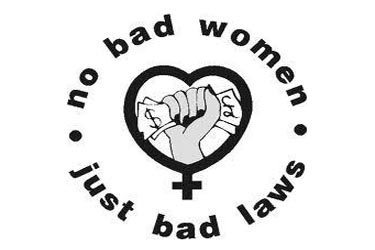‘Be Careful Who You Rape’
Adrian Bayley, who raped and murdered Jill Meagher, also had a 20-year history of violence against women. For attacking and raping five sex workers he received a very light eight-year sentence, which sends the wrong message to potential rapists and murderers.

Last year a young woman and journalist named Jill Meagher was raped and murdered in Melbourne, Australia. The horrified city watched footage from a shops’ security camera that showed the moment the murderer, Adrian Bayley, approached her as she walked home along a main street. He was arrested a few days later. From the beginning the crime galvanized awareness of violence against women and straddled the personal and the political. A large protest march was held close to where it took place and over the weeks many women, including sex workers, came forward to talk about violence and sexist harassment and the failure of institutions to effectively address them.
Bayley was sentenced to 35 years for Meagher’s murder in a court case that revealed his 20-year history of violence against women. For attacking and raping five sex workers he received a very light eight-year sentence and was on early parole when he killed Meagher. This is no surprise. He has a history of preying on sex workers, as many rapists and murderers do, including the famous Yorkshire Ripper in the UK, Robert Pickton in Canada, and innumerable less well celebrated cases.
But then something surprising happened that made this case different. Meagher’s grief stricken husband, Tom, gave a moving television interview in which he further fused the intensely personal and the unavoidably political. With a striking lack of self pity, Tom said he was not asking “Why me?” but “Why anyone?” He pointed out that Bayley’s previous victims were sex workers and decried their treatment by the justice system. He said, “Put it like this: If he’d raped five people like Meagher that many times in that brutal a fashion, I don’t think he would have [only] served eight years in prison.”
He is right. Bayley was attacking and raping sex workers at a time when judges had explicitly said that raping a sex worker was fundamentally different than raping a “chaste woman” because the experiences associated with prostitution mean the prostitute does not endure the same “reaction of revulsion” during forced sex and that the elements of “shame” and “defilement” may be missing or diminished so the circumstance of aggravation is missing.
Sex workers are aware of the discourse that casts them as less worthy, and they know it increases the risk of violence and means less opportunity for redress when it occurs. In Australia and throughout the world, many sex workers vote with their feet by avoiding reporting assaults for fear of being disbelieved, derided, exposed, or themselves criminalized.
Sex worker organizations both advocate for fairer treatment of sex workers and take practical steps to reduce violence. In Melbourne, the Prostitutes Collective motto was “No Bad Women,” and in the 1980s it developed the “Ugly Mugs List,” a weekly circular to warn sex workers in the area about men preying on them. It is prepared and distributed by sex workers, and it contains descriptions of the dangerous men and their behavior. It has proven effective and been adapted to a number of other countries. It can be very chilling reading. In those early days, the collective also held protests about poor responses to violence against sex workers in front of the local station. Eventually the sex workers were invited inside to meet police and develop constructive approaches to the reducing harms associated with sex work. Over time plans to divert sex workers from court to appropriate social and medical care began to work, and police stopped confiscating condoms and began treating complaints of violence by sex workers more seriously.
However, the success of these kinds of initiatives and attempts to address gender-based violence more broadly are ultimately determined by the messages that men like Bayley receive about violence and women. We need to recognize that all women are made more vulnerable to violence when rather than “Don’t rape,” those messages say “Be careful who you rape.”
Many families in the dreadful situation in which Tom Meagher found himself stress that their loved one was an innocent woman who didn’t deserve such a fate. By departing from that familiar discourse and saying “No Bad Women,” he dignified his wife, sex workers, and all women. By arguing that ending violence against women entails achieving justice and equality for sex workers, he has provided a clear example of the cultural sea change necessary to end violence against women. It is to be hoped that the government, justice system, media, and police come to the same conclusion and that they can summon up the kind of courage and integrity displayed by Tom Meagher when he raised and rejected the “whore stigma.”

